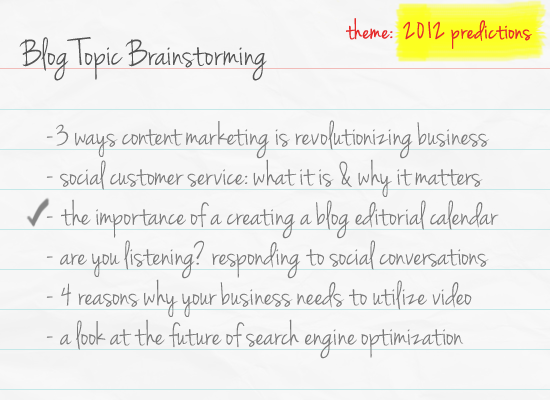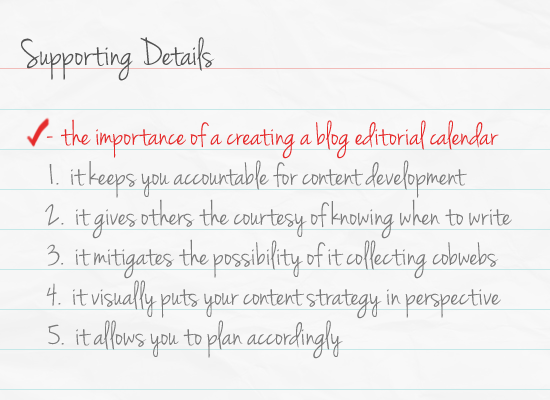How to Plan Your Next Adventure in Blogging
The saying goes, March is “in like a lion and out like a lamb.” In the month of March, we would like to share our experiences in perseverance on the Galvin blog. Whether that is taming a chaotic project or overcoming an obstacle – big or small – we have plenty of stories to share that have challenged us as professionals in the web and software industry to rise above. We look forward to sharing our stories and hope you share yours as well.
I can’t lie: I love words.
Since I was old enough to pick up a crayon, I was writing three- and four-letter words on my parents’ manila-colored living room walls. In red, magenta, and various shades of Crayola pink, I scribbled the words ‘cat’ and ‘mommy’ with such pride on antiqued walls, only to be disciplined for not doing this appropriately on paper. I learned my lesson to never write on walls again, but that didn’t stop me from picking up another crayon (or perhaps a pencil, pen, and, these days, a keyboard) to construct bigger words into sentences, sentences into paragraphs, and paragraphs into essays, stories, poems, et cetera. Through the years, I have learned to embrace my love of the English language and have treated writing equally as a hobby for pleasure and a skill for growth.
The Perils of Writing
However, like anyone else who writes, I have struggled to accept my carefully composed words as an accurate representation of my thoughts and emotions. When you use words, you have to be mindful of what they mean. Writing is a craft that does not apologize for misinterpretation or lack of clarity. It is easy to spend unnecessary time mulling over the structure of a sentence or the way two words roll around together in your mouth. Likewise, it’s even easier to waste time erasing, scratching out, and pressing the backstroke key too many times when that perfect juxtaposition of nouns and adjectives never arrives.
As someone who relishes in words and analyzes the impact of each in blogging, social media, and content marketing, I knew two things to be true: words are precious and time cannot be wasted. After acknowledging my struggles, I decided to change the way I approached my writing process, especially when it comes to blogging.
What did I change? Just like with everything else in life, I’ve come to realize that planning is everything.
Planning is Everything
The Narrower the Topic, the Better
When I know I’ll be assigned with the task of writing a blog article such as this, I will allot myself 20 minutes to brainstorm topics related to the month’s chosen theme. When selecting a blog topic, I try to avoid broad topics that have room to fit 10, 25, or 50 blog posts. For example, I wouldn’t just write about copywriting; I would write about how you can create an effective editorial calendar to keep your content fresh. Narrowing the focus keeps YOU focused.
As a rule of thumb, if I can summarize the topic in a sufficiently brief headline, then it’s a doable writing prompt. My brainstorming routine usually involves me spitting out these brief headlines in either two 10-minute increments or just one 20-minute session. From there, I not only have several topics to choose from, but I’ve got content ideas to table for future use.
Everything is in the Details
Once I’ve selected my blog topic (and know that it fits within this month’s theme), I do another brainstorming session that allows me to summarize my thoughts into three to five supporting details to back it up. As a visual learner, this method has proved the most successful for me. It not only helps me visualize each thought, but it forces me to think about how each one relates to the main idea and other supporting details.
I am free to arrange the order of as I see fit; I can usually trust my first supporting detail to be the most important. I will cross out any that overshadow my main point or are just too broad to serve as a supporting detail. Rearranging the supporting details in the most logical way can be the most challenging part of this brainstorming process, but once you are able to understand how to transition from one point to the next, the process of writing will flow more freely.
Cite Your Sources, Please!
If you are writing to lead, persuade, or educate your audience, then back up your supporting ideas with credible sources. Especially if you’re citing specific facts, steer clear of plagiarism by always stating the source and linking back appropriately to any verbatim you borrow.
It’s also important to know when to cite sources. If you cite too much, it may come across to your audience that you have no valuable opinion or advice on the subject. If you don’t cite enough, your audience might hesitate to trust your words. As a rule of thumb, if you don’t know it, quote it. Always cite sources for facts that are not common knowledge among your intended audience.
If I need to cite sources, I begin digging into my topic a little deeper by doing research. Research is a tricky area for copywriters. Do you do it before or while you write? If you find at least 80% of your sources before you begin writing, you limit the possibility of interruption. It’s so easy to open up a web browser to search for something to only find yourself enchanted for hours by warm glow of Facebook or Pinterest. Don’t let this happen!
Remember: the more you plan, the more focused you are. The more focused you are, the better the writing experience.
Let the Blogging Begin
Now that I’ve picked a topic, selected my three to five supporting details, and have a list of sources to use, the writing process feels like a breeze. I can write without tapping the delete button repeatedly for fear of my message getting misinterpreted or misunderstood. I no longer struggle to tie one point to the next. There is rhyme to my blogging rhythm.
There is no magic formula when it comes to writing, but planning gives you a place to organize your thoughts. Planning has brought clarity to mine, allowing me to drive my main message across the finish line in a timely fashion. I am a much more productive writer who doesn’t get overwhelmed with the ghastly power of words.
I am thankful for my struggles. Now I am writing smarter, not harder.
What’s your biggest struggle with blogging and how were you able to overcome it?















